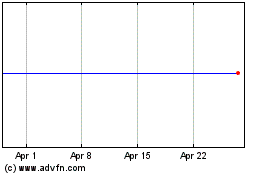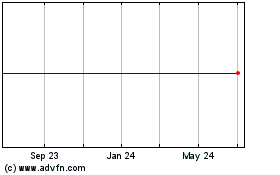AstraZeneca's Profit Rises -- WSJ
November 11 2016 - 3:03AM
Dow Jones News
By Denise Roland
LONDON -- AstraZeneca PLC's net profit climbed in the third
quarter as a one-off tax windfall helped offset sharply lower sales
of the company's best-selling cholesterol pill, after several cheap
generic versions launched earlier this year.
The drug giant posted net profit of $1 billion for the three
months to Sept. 30, 32% higher than in the same period a year
earlier, while revenue dipped 4% to $5.7 billion. Analysts had
expected net income of $731 million and revenue of $5.87
billion.
Cambridge, England-based Astra said profit was lifted by a $453
million payment relating to agreements between the Canadian tax
authority and those of the U.K. and Sweden. Core operating profit,
a measure that strips out certain one-time gains and losses,
declined 2% to $1.7 billion.
Stripping out currency effects, net profit increased 4%, revenue
fell 4% and core operating profit declined 13%.
Astra is leaning on a string of new drugs such as blood-thinner
Brilinta and cancer drug Tagrisso to return the company to
sustainable growth after years of flat or falling revenue, as old
best-sellers lose out to cheaper copycats after losing patent
protection.
Those new products did drive revenue growth, but not enough to
offset the sharp decline in sales of old blockbusters such as
Crestor -- which lost patent protection earlier this year -- and
heartburn medicine Nexium. Crestor sales slumped 44% to $688
million in the third quarter, while Nexium revenue declined 20% to
$516 million.
Chief Executive Pascal Soriot has said the company's
recently-launched medicines, plus several still in clinical testing
will increase revenue to $45 billion by 2023 compared with $25
billion in 2015. That promise was a key part of his defense against
an unsolicited, and ultimately failed, takeover bid by Pfizer in
2014. Mr. Soriot said that strong growth trajectory should start in
the second half of next year.
At the same time, drug company revenues are under pressure from
increasingly cost-conscious governments and health insurers,
especially in the lucrative U.S. market. Mr. Soriot said the
election of Donald Trump in Tuesday's election wouldn't alleviate
that pressure. He also said it was too early to predict how a
repeal or substantial modification of the Affordable Care Act --
one of Mr. Trump's campaign promises -- would affect the
industry.
"The U.S. marketplace has always been [one] that supports
innovation and new differentiated medicines," he said. "We hope it
will remain the same."
Astra's revenue was also boosted by $674 million in so-called
externalization revenue, or the proceeds from the sale of rights to
drugs that fall outside its core therapy areas of cancer,
respiratory and cardiovascular disease.
The company backed earlier guidance to say it expects a
low-to-mid-single-digit decline for both revenue and core earnings
per share.
Write to Denise Roland at Denise.Roland@wsj.com
(END) Dow Jones Newswires
November 11, 2016 02:48 ET (07:48 GMT)
Copyright (c) 2016 Dow Jones & Company, Inc.
AstraZeneca (NYSE:AZN)
Historical Stock Chart
From Mar 2024 to Apr 2024

AstraZeneca (NYSE:AZN)
Historical Stock Chart
From Apr 2023 to Apr 2024
